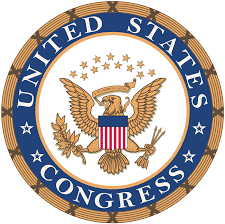
WASHINGTON—In the strongest bi-partisan moves since President Trump’s election, Congress passed a spending agreement called an omnibus that is in stark contrast to President Trump’s 2018 budget – in which he proposed that transportation funds be slashed by the billions.
In the just-passed bill, Congress secured and even increased transportation funding, preventing the loss of tens of thousands of jobs, the elimination of long-distance train service, and a freeze on railway, road and bridge infrastructure upgrades.
One important spending increase was an additional $570,000 for the National Mediation Board; something SMART TD has been seeking to reduce the backlog of arbitration cases.
For our California members, the omnibus included $100 million in funding for the Caltrain electrification project. This means that construction—previously placed on hold by the Department of Transportation will move forward, with federal funds for Caltrain guaranteed until the end of FY2017.
For our Great Lakes pilot and flight attendant members the Essential Air Service (EAS) program for rural communities was fully funded, something President Trump’s budget also proposed to eliminate.
For our bus membership, federal funding for the Federal Transit Administration—slated by the administration for a major decrease—was increased by $236 million and $2.4 billion was included for transit Capital Investment Grants.
In addition, the omnibus spending provides a permanent solution to guarantee health care for nearly 22,000 retired union mine workers who have been impacted by the growing decline of coal production.
“This proposal, which had widespread support on both sides of the political aisle sends a clear message to the White House that killing transportation initiatives and slashing transportation funding is not supported by Congress – and is not in the best interest of transportation workers and our nation,” stated John Risch, SMART TD national legislative director.
Although this vote is a victory, we must remain vigilant and continue to contact our representatives to make it clear that investments in transportation are vital to our nation.
Click here to visit the SMART TD Legislative Action Center to contact your elected officials about the rail, bus and air transportation issues that affect us.
Tag: EAS
In a report by Colorado Public Radio, the Essential Air Service (EAS) program is on the chopping block in Trump’s budget. EAS helps fund small airlines, like Great Lakes Airline, to provide service to smaller airports throughout the country. Without this funding, these small airlines could fold.
In Colorado alone, Pueblo, Alamosa and Cortez airports are operated by airlines who receive EAS funds. If these funds go away, small airlines may not be able to afford to provide service to and from these small cities. Great Lakes Airlines currently receives EAS funding for flights in and out of Denver, Pueblo and Telluride, Colo.
Read more from Colorado Public Radio.
The Senate Appropriations Subcommittee on Transportation, Housing and Urban Development (THUD) passed $56.5 billion legislation to fund its programs for Fiscal Year (FY) 2017. The bill includes several positive allocations for rail:
- $1.7 billion for the Federal Railroad Administration – $76 million above FY 2016 enacted level
- $525 million for TIGER Grants – $25 million above FY 2016 enacted level
- $2.3 billion for Capital Investment Grants (New Starts) — $161 million above FY 2016 enacted level
- Amtrak: $345 million for the Northeast Corridor and $1.075 billion for the National Network – total $30 million above FY 2016 enacted levels
- New passenger rail grant programs created under FAST Act: $50 million for Consolidation Rail and Infrastructure and Improvement grants; $20 million for State of Good Repair grants; and $15 million for Restoration and Enhancement grants
The Senate also passed legislation that would reauthorize the Federal Aviation Administration (FAA) through FY 2017. The legislation would authorize the appropriation of $155 million from the Airport and Airway Trust Fund for the Essential Air Service (EAS) for each of the FYs 2016 and 2017.
Both pieces of legislation face more hurdles before they become law, but we are pleased that they include positive developments for our rail and air members.

Great Lakes Airlines is the largest recipient of Essential Air Service grants, which helps keep flights operating to 120 communities in 35 states. Such assistance is seen as crucial to the economies of rural communities.
Congress has changed a provision of the program to require that Essential Air Service routes average at least 10 passengers daily and that no new communities be added to the program.

The House and Senate also agreed Sept. 15 to a new four-month extension of Federal Aviation Administration taxes that fund the Essential Air Services program vital to regional airlines that employ UTU-represented pilots and flight attendants. It was the 22nd temporary extension for this program since 2007.
The president said he will sign the temporary extensions into law, allowing more time for the House and Senate to continue attempts at reaching compromise on a permanent extension of transit and EAS programs that have been stalled for years.
The highway bill extension ensures that more than $4 billion from the Highway Trust Fund for Federal Transit Administration formula and bus programs will remain available for spending through March 31. Disagreement between the House and Senate on the number of years to authorize a new highway/transit spending bill is the reason for that stall.
A permanent FAA reauthorization, which includes the EAS program, is stalled over an inability to agree on future EAS subsidies, and an attempt by House Republicans to include in the bill a provision overturning a 2010 National Mediation Board rulemaking. That rulemaking changed the rules for representation elections from counting those not voting as “no” votes, to determining outcomes based only on those voting.